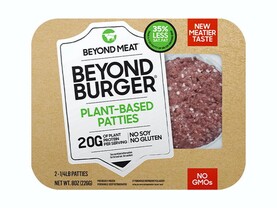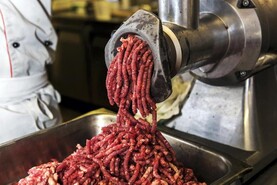The formal launch this week of a €100m fund for processors is naturally welcomed by the meat and dairy industries and indeed is good news for the areas of the country where factories are located.
Unlike many types of employment, these are frequently across parts of the country where there are no comparable employers, so job security and opportunities are also welcome in rural Ireland.
It is also good news for farmers in the sectors of Irish agriculture that produce the raw materials that make these factories function.
Processing needs raw material from farms
Notwithstanding environmental and welfare challenges for the Irish dairy sector, we have the most necessary sustainability factor of all - economic.
Without a viable business at farm or factory level, then there is simply no reason for the sector to exist and if it doesn’t exist, any problem associated with production disappears.
Environmental and welfare issues are challenges that have to be and will be overcome.
Pig and sheepmeat
Our pigmeat sector is now also globally competitive due to a small number of large-scale producers maximising productivity and on-farm efficiency.
Invariably, their relationship with the processing sector is close and a very slick supply chain is in place.
Sheepmeat processing is also so far viable because of progressive increases in farmgate prices on the supply side and the continued availability of lambs from the North with the protocol in the Brexit deal.
While Irish exports still haven’t been approved to either the US or China, the fact that these markets absorb so much New Zealand (NZ) and Australian production means the EU market is so far less targeted.
This is a space to watch, as the UK and EU make trade deals with Australia and NZ, while we will see a proliferation of Australian sheepmeat in the EU and UK market place.
Viability of beef supply?
The one area that has to be of particular concern for sustained raw material supply is the specialised beef from the suckler herd.
Notwithstanding that weanlings have been particularly strong in recent months, the reality is that beef price in Ireland hasn’t been increasing over the past five years.
With the EU market set to open further to international supplies in the years ahead, the knock-on effect of Brexit and the fact that Irish beef doesn’t command a premium in international markets has to put a question mark over the viability of beef production at farm level.
Of course, the dairy cow herd produces offspring and if there is a strategy to raise more dairy-bred calves in preference to live exports, that creates a raw material beef supply.
It is also compatible with the development of consumer consumption of beef - the trend towards mince and burgers can be satisfactorily supplied from dairy-bred cattle.
There is also the prospect of achieving a PGI for grass-fed Irish beef driving some additional value, but this remains unproven.






 This is a subscriber-only article
This is a subscriber-only article










SHARING OPTIONS: